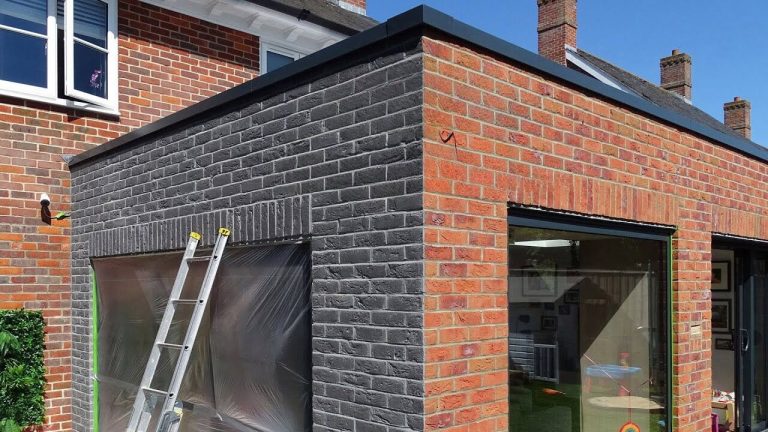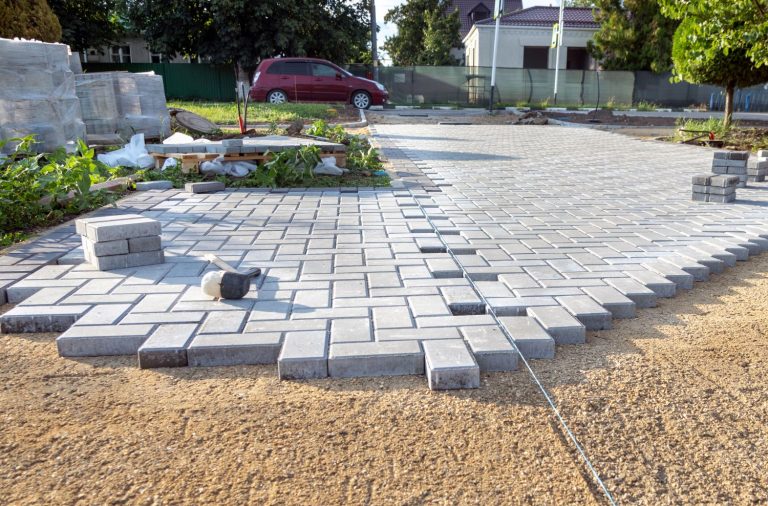When tackling a masonry or tile project, choosing the right material can make all the difference in long-term performance and appearance. While the debate around mortar vs grout may seem like a cut-and-dry answer, they serve very different purposes and have distinct physical properties.
Understanding how these materials differ in composition, application, and function can help you make the right choice for your project and avoid costly mistakes.
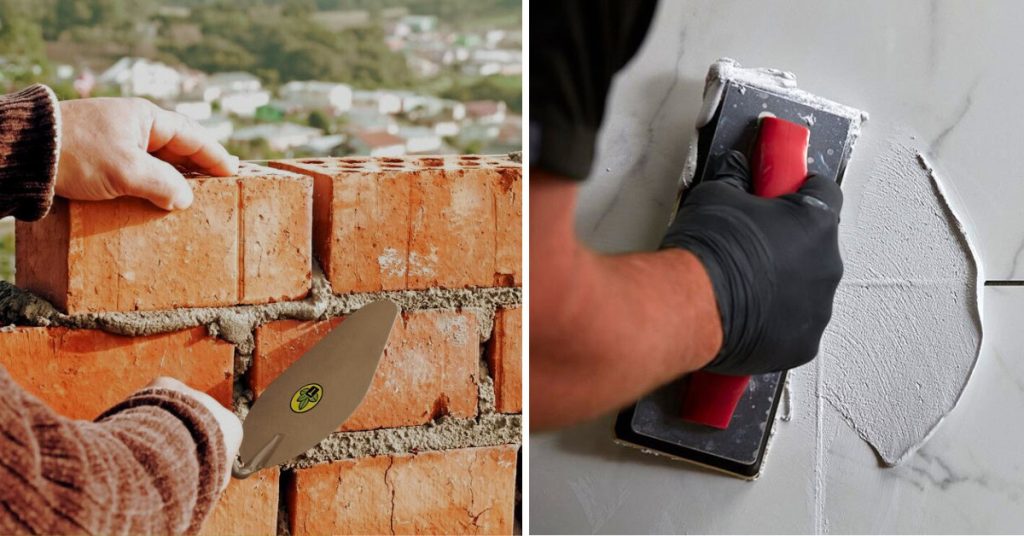
What Is Mortar?
Mortar is a thick, paste-like mixture composed of cement, sand, and water. Its main job is to bind masonry units together, such as bricks, stones, or CMU blocks. Once it sets, mortar forms a durable, semi-rigid cushion between building materials that resists structural shifts while offering just enough flexibility to absorb small amounts of movement.
Mortar is typically applied with a trowel and allows for adjustments during installation, giving masons the ability to level and align materials for a clean, even finish. In the conversation of mortar vs grout, they tend to be confused for one another, that’s why it’s always good to know what you’re looking to get repaired before reaching out to a contractor.
Common Uses:
- Repairing and constructing brick walls and columns
- Repairing and constructing stone facades and retaining walls
- Fireplaces, mailboxes, and outdoor kitchens
- Chimneys and structural repairs to masonry structures around your home and community
What Is Grout?
Grout is a thinner, more fluid mixture made of cement, water, and sometimes sand or polymers. Its primary role is to fill the gaps or joints between tiles after they’ve been set in place. Grout hardens as it cures, sealing joints and protecting against moisture, debris, and movement.
Because of its pourable consistency, grout flows easily into tight spaces and is typically applied with a grout float rather than a trowel. When comparing mortar vs grout, the two end up being confused for one another, so sometimes it’s difficult to find the correct home service professional to handle the work.
Common Uses:
- Tile floors, backsplashes, and showers
- Decorative veneers and architectural features
- Areas where waterproofing or finish uniformity is key
Mortar vs Grout: How to Choose the Right Material
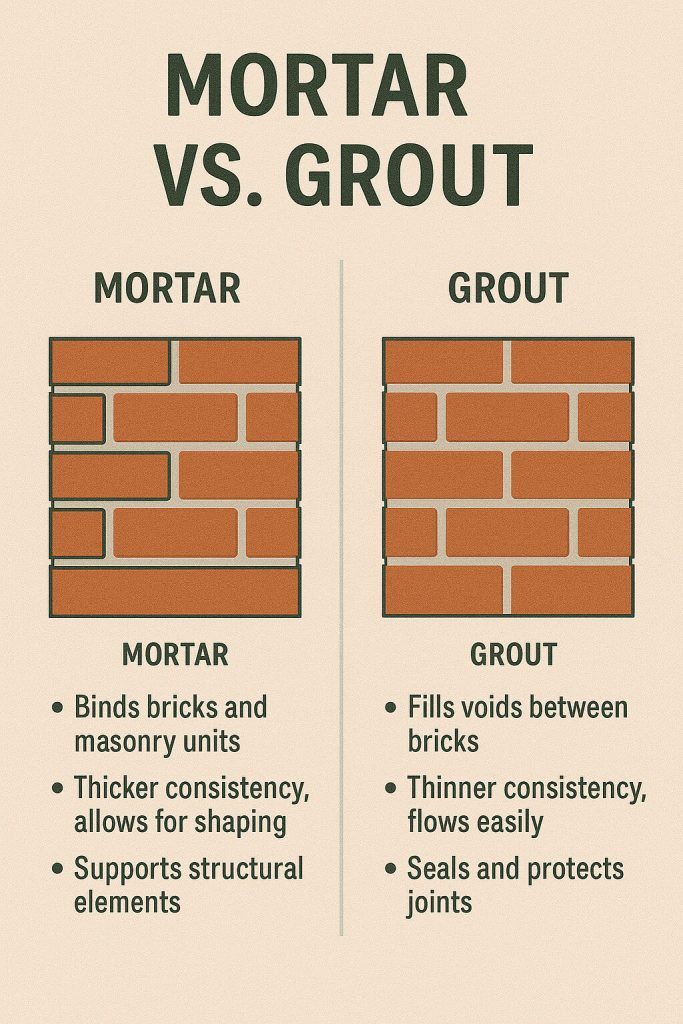
The key is understanding the function of the area you’re working on:
- If you’re building something, such as a brick wall or stone veneer, you’ll need mortar for its bonding strength.
- If you’re filling gaps, like the spaces between bathroom tiles, you’ll need grout for its sealing properties.
Don’t use grout where mortar is required—grout doesn’t have the structural integrity to hold heavy materials together. Likewise, mortar is too thick to properly fill tight gaps and won’t provide the clean, finished appearance grout is known for.
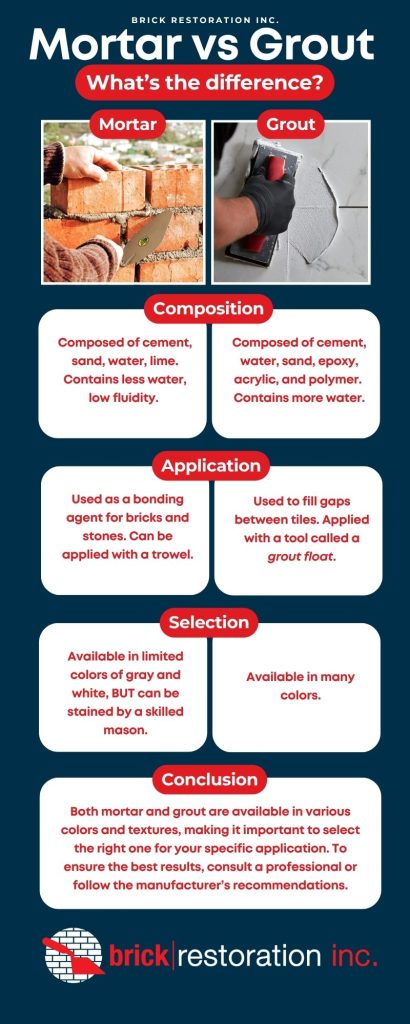
Professional Masonry Services in Texas
At Brick Restoration, Inc., we specialize in both mortar and grout applications, ensuring every project meets the highest standards of durability and beauty. Whether you’re restoring a weathered brick wall or upgrading a tile patio, our expert masons bring skill and precision to every job.
Our Services Include:
- Tuckpointing and mortar repair
- Structural brick and stonework
- Grout sealing for patios and tilework
- Masonry waterproofing and weatherproof finishes
Our team understands that selecting the right material is just as important as proper installation. We’ll assess your needs, recommend the best approach, and deliver results that last. Interested in getting more information regarding mortar vs grout, check out The Spruce’s article about Mortar and Grout.
About Brick Restoration, Inc.
We are the highest rated full-service masonry repair and installation contractor serving the Greater Houston and Dallas-Fort Worth areas.
Known for our expert workmanship and outstanding results, our extensively trained masons and patented technology separates us from other masonry contractors.
With over 30 years in business, our masonry team and specialists are experts at enhancing your home’s curb appeal.
Schedule your free estimate today to meet with one of our Restoration Specialists.



